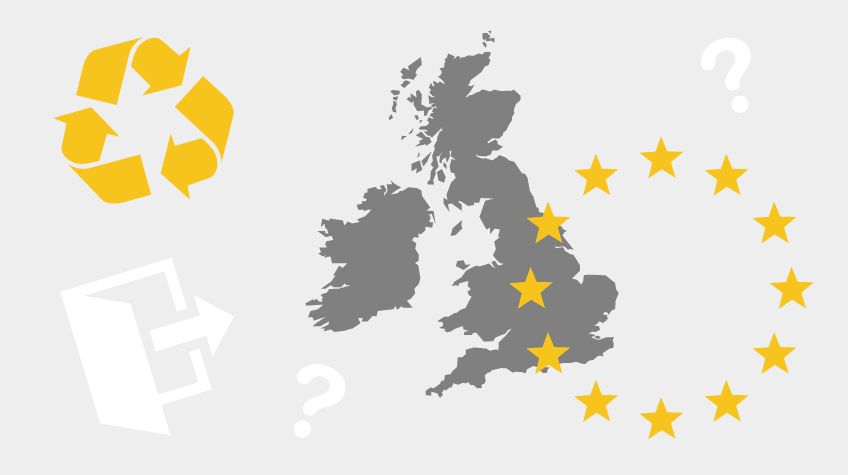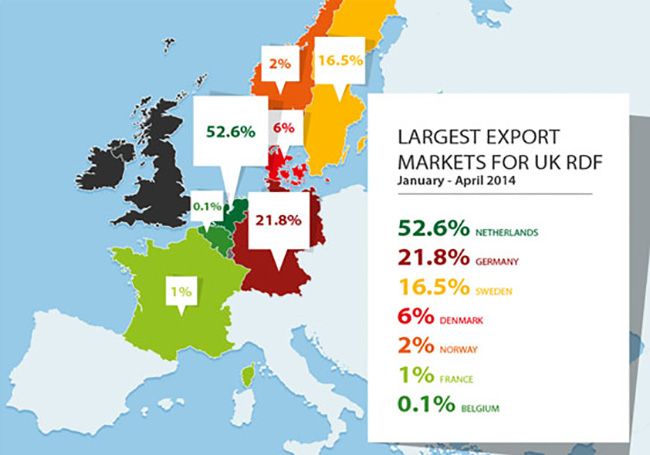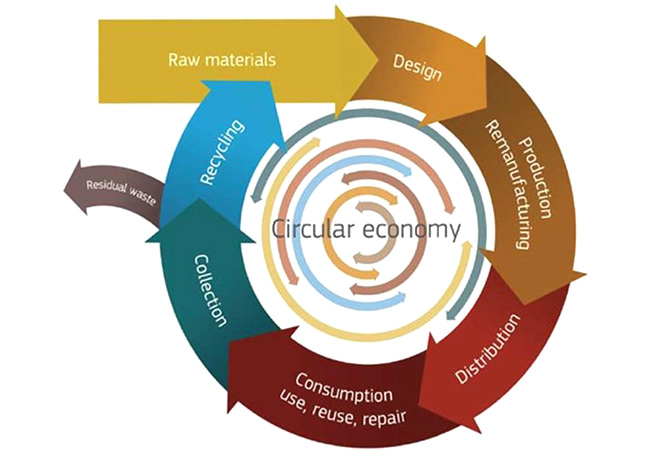
What Would A Brexit Mean For The Waste Industry?
June 23rd will be an influential date in Britain’s political and economic history for decades to come. Not only is our position in the EU is at stake after a 44 year long membership, it is also the largest referendum our country has ever held and a decision which will affect not just the UK, but also the rest of the world.
So, the burning question which leaves many of us undecided is ‘Do we stay or do we go?’ The result of this referendum will undeniably have a considerable impact on factors such as trade, Britain’s industries, immigration and direct foreign investment in the UK. However, here at Trade Skips our main focus is the effect and subsequent pressures on Britain’s waste industry.
EU Waste Management Regulations
Our attitudes and ideas with regard to waste management in the UK have largely been shaped by regulations imposed by the EU.
In 2014 the rate of recycling of ‘household waste’ in the UK reached an impressive 44.9 per cent. Dubbed the “Dirty man of Europe” during the 1990’s, it is clear that since then we have made significant improvements.
Three of the main waste regulations imposed by the EU are:
1) The Waste Framework Directive
Initially introduced in the 1970s with substantial amendments in 1991, the directive requires all member states to take necessary measures to ensure waste is recovered or disposed of without endangering human health or causing harm to the environment.
The directive additionally requires member states to prevent or reduce waste production, encouraging the recovery of waste by means of recycling, re-using, reclaiming, or any other process regarding extracting secondary raw materials, and the use of waste as a source of energy.
2) The Landfill Directive
The focus of this directive is to reduce the ever growing reliance on landfill as a disposal option. It aims “to prevent or reduce negative effects on the environment, in particular, the pollution of surface water, groundwater, soil and air, and on the global environment, including the greenhouse effect,’ including any risk to human health as a result of the life cycle of the landfill.
3) The Circular Economy
The objective of this directive is harvesting sustainable economic growth, boosting global competitiveness and creating new job opportunities. By minimising waste and reusing and recycling raw materials, the product is kept within the economy after it reaches the end of its life cycle, thereby maintaining its value for as long as possible.
It is clear to see that our current approach to waste management in the UK has been hugely shaped over the past few decades by regulations and pressures imposed on us by the EU. The question is if we were to leave the EU would we see a change in any regulations or in our overall attitude concerning waste management?
Refuse-Derived Fuel (RDF)
RDF is waste produced by shredding and dehydrating solid municipal waste, which is then used in a waste to energy converting process. This is a continuously growing sector within Britain’s waste industry. Between 2014 and 2015 English and Welsh exports of RDF increased by 0.51m tonnes from 2.43 to 2.94 and this rise is estimated to continue
As we currently benefit from Europe’s free trading regulations, if a Brexit were to occur, how would this affect the RDF export industry given that the majority of our RDF is exported to other European countries? Data shows that we export the largest quantity of RDF waste to the Netherlands (1.3 million tonnes), followed by Germany ( 0.7 million tonnes) and Sweden (0.41 million tonnes). Without the advantage of EU free trade there would be increased export costs and the UK would sit less favourably in the already increasing competition for RDF supply.

(Source: Letsrecycle via EA data)
With an abundance of RDF supplies in the UK, our downfall would be the lack of investment in facilities to cope with supply and demand. As a result we could face the disappointing possibility of reverting back to landfill with some of this waste, resulting in lower overall diversion rates.
One of the UK’s largest waste management companies – SITA UK – have stated that owing to our successful export history, the UK has achieved far higher landfill diversion rates than if it had relied solely on domestic treatment. We already face increasing pressures to improve our self-sufficiency and waste management, largely due to the fact we are a very small island in comparison to the rest of the world and other EU countries, and therefore only have a limited amount of land available for landfill use.
Of course new trade relationships will be made in the event of a Brexit, possibly similar to that of Norway – joining the EEA (European Economic Area). However, the UK could use this as a perfect opportunity to build our own infrastructure to convert the waste to energy ourselves, along with providing jobs and beneficial skills in the UK.
What’s Next?
In the event of a Brexit we need to consider what the government would prioritise and how their decisions would affect the waste management industry. Would the UK implement the ideologies of the circular economy into new laws and regulations or would it simply go to shortfall?
With increased control over our own economy it is likely that the government would focus on the growth of our home grown industries and GDP, and with increased output comes the increased pressure on our finite resources as well as potentially less focus on sustainability. In conjunction to this we are currently experiencing low commodity prices and raw material costs, giving ever more reason for many industries to use resources less efficiently. These factors are likely to lead to increased overall waste output across many industries and potentially we could see a greater priority given to economic growth and less given to sustainability and the environment.
An obvious point is that with the imposition of the EU regulations, the UK has an overall consensus of consideration for our earth. We are environmentally conscious, our attitudes have changed and being sustainable has become a way of life. But does this mean to say that all of this will vanish if we leave the EU? Our guess is that it wouldn’t. It is extremely unlikely that the Government would create new waste legislation and that UK laws would fall in line with the current EU framework, as many other non-EU countries are doing already. Any effects that may occur in the event of an EU exit would become apparent over time, and these would be minimal.
All in all, we believe that if a Brexit were to go ahead, it is unlikely that the UK waste industry would see any drastic changes. Any changes to regulation are likely to be small and rolled out over a long period with no substantial changes occurring overnight. As the Government would be working to keep in line with main regulations of the EU anyway, it would be the less important regulations that would go to shortfall. However, it is possible that progress towards achieving some of our 2020 goals would be slightly hindered, with economic growth potentially taking precedence over sustainability – opposing the principles of the circular economy which states that the two should go hand in hand.


